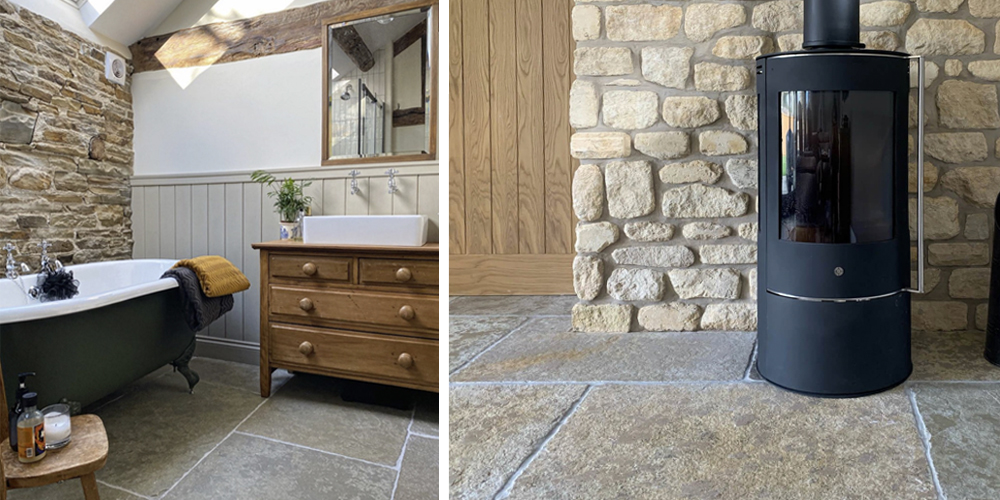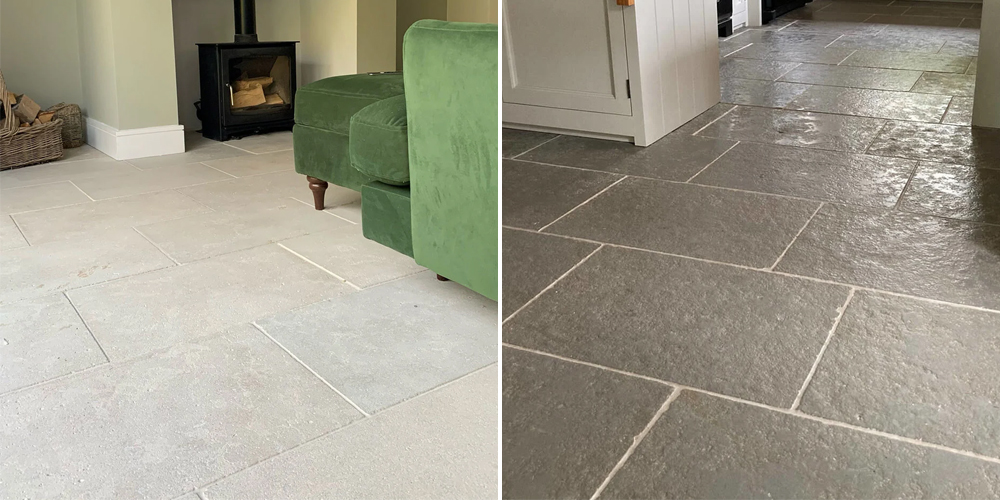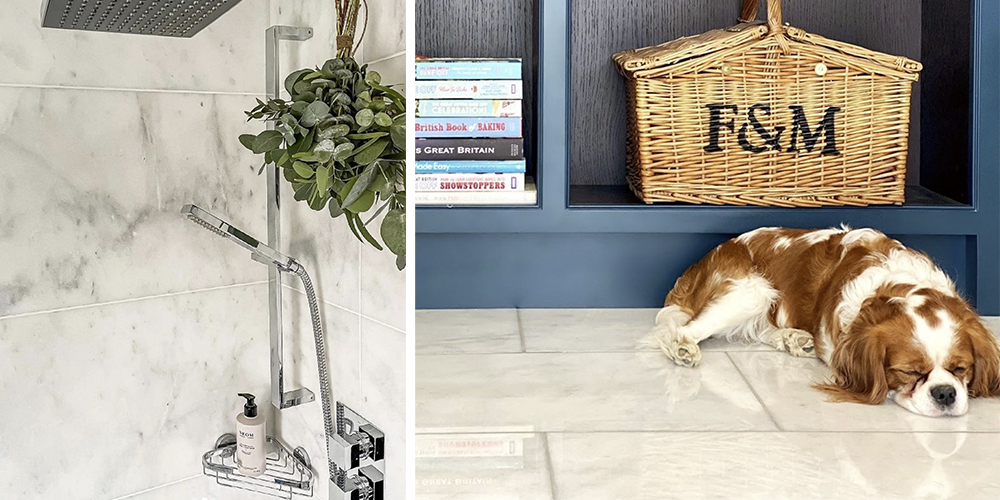When it comes to installing a brand-new tiled floor in your home, you probably already know that you have two key material options in front of you: porcelain floor tiles and natural stone flooring.
However, while porcelain tiling has been dominating the tiling market in recent years, there has been a real surge in the popularity of natural stone flooring types, and for a variety of good reasons.
Historically, marble tiling was seen as something only the wealthy could afford, while limestone floor tiles were a relatively unknown concept, as the only limestone tiles available were generally domestically quarried and very expensive. Nowadays, however, premium natural stone flooring is much more attainable, which is why we’ve pulled together this detailed stone tile guide.
Offering insights into the different types of stone flooring available and the pros and cons of each, we hope to give you a much better understanding of the types of natural stone out there, so you can decide whether a new set of natural stone tiles are a suitable choice for your home.
What is natural stone flooring?
First things first, before touching on the specific types of stone tiles you can choose between, let’s start by looking at what natural stone flooring actually is.
Natural stone flooring is, quite literally, a set of tiles made up of entirely naturally formed stone, albeit stone that has been cut and refined to a set size for use as a flooring material in homes.
All types of stone tiles are quarried from mines across the world, hence why natural stone tiling is quickly becoming cheaper and easier to cut and refine for installation as in-home tiling. Here at Stone Superstore, for example, our natural stone flooring types include:
- Limestone tiles
- Sandstone tiles
- Flagstones
- Marble tiles

Our Somerset Limestone tiles feature subtle, natural colour varitions and an antiqued finish, which looks beautiful in any setting.
What are the advantages and disadvantages of natural stone?
As with any surface solution, there are a number of advantages and disadvantages that come with using natural stone tiles. We’ve laid out the key ones to be aware of below:
The benefits of natural stone
When it comes to the advantages of stone, homeowners can enjoy all of the following benefits:
- Extensive and long-lasting durability.
- A natural and elegant look that can very much be one of a kind.
- A flooring option with simple maintenance.
The drawbacks of natural stone
However, natural stone also comes with the following disadvantages:
- While certainly cheaper than a decade ago, many types of stone tiles are still relatively expensive, especially when laying them down across a large area.
- Unlike porcelain, stone tiling needs to be sealed properly to avoid absorbing stains, a process which must be done during installation and repeated every few years.
- By its very nature, softer stone tiling does have the potential to chip or scratch if not looked after properly (though there are simple ways to repair scratched tiles).
- Due to how different types of stone tiles are cut and sourced, you may find that the colour and patterning of your tiles have tonal variation once laid. However, all of your tiles should be from the same batch, so the differences will likely be minimal.

Left: Menton Tumbled and Brushed Limestone, Right: Camden Grey Tumbled and Brushed Limestone
What are the different types of natural stone tile finishes?
Unlike porcelain, opting to use natural stone in your home is usually a personal style choice. Generally speaking, those looking for natural stone in their house understand that every piece will be unique, as it is a natural material and deviations can occur.
However, while every piece of stone is different from each other, there tends to be a common uniformity in colour and pattern with each material type, helping to form a consistent and elegant base style.
Some stone flooring types also have a variety of shades in them that give them a tonal look, while others are very uniform in colour. As a result, people typically base their buying decisions on a stone’s base colours, the amount of pattern found in the stone, and the surface finish.
Here at Stone Superstore, our natural stone tiles come in three main finishes:
- Polished stone tiles offer a high shine and are very reflective, being a classic option for marble tiling.
- Honed stone tiles are soft-matte to the touch and often have a silk-like appearance, making them a good middle ground for stone flooring types that sit between marble and limestone.
- Tumbled tiles, also called antiquated tiles, provide a worn and aged appearance and are exactly what you’d expect for a traditional limestone tiled floor.
On top of these finishes, we also offer stylistic choices for each of our various types of natural stone tile, including brushed, or pillowed or chiselled edges, all of which can help to give the appearance of aged stone.

Our marble tiles are available in both polished and honed finishes
Cleaning your natural stone tiles
Unlike other flooring materials, natural stone has a simple cleaning regime to keep it in tip-top condition – though you will want to avoid bleach and coarse cleaning products, which have the potential to damage your tiles by accident.
Instead, warm, soapy water is often enough for day-to-day cleaning. But for tougher stains, we’d recommend using stone-specific cleaning products that won’t damage your tile or its sealant.
Resealing your stone tiles
One of the main considerations you’ll need to make when choosing natural stone flooring is the fact it requires protection with a sealant, during and after installation, to avoid staining and dampness. Be sure to note that this is not a one-time process and will require you to reseal your tiles every couple of years.
However, re-sealing natural stone tiles is also a very easy task, and if done right, won't need to be repeated more than every two years at a minimum.
Find your perfect stone tile type in our range
You should hopefully now have a better idea of the different types of natural stone tiling available, and what finishes you can choose from when shopping from the Stone Superstore range. If you’re ready to see what stone tiles we have on offer in our collection, then there’s no better time to browse than now.
You can even get in touch with our experts directly for more information around what stone tiles and porcelain alternatives we have to offer, such as marble-effect tiles. And don’t forget to visit our tile advice and installation guides for more helpful articles like this one.

